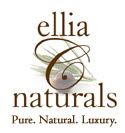 Artisans in the realm of handmade skin care have long known and utilized the healing properties of certain essential oils topically to help customers with relatively non-invasive skin conditions. However, this spring the Society for General Microbiology in England released a study suggesting they may be capable of even more.
Artisans in the realm of handmade skin care have long known and utilized the healing properties of certain essential oils topically to help customers with relatively non-invasive skin conditions. However, this spring the Society for General Microbiology in England released a study suggesting they may be capable of even more. According to the study, certain essential oils, such as thyme and cinnamon, may also be effective at fighting hospital-based antibiotic-resistant infections such as MRSA (meticillin-resistant Staphylococcus aureus) and other forms of staph (Staphylococcus). The study confirms what alternative medical practitioners have contended for years...that some essential oils have antimicrobial properties. Essential oils have been used therapeutically in many countries for hundreds of years, though very little is known even today about how they exert their antimicrobial effects in humans. It is important to note that these oils generally require dilution in some medium, such as a carrier oil, or diffusion into the air for sanitization purposes, as direct application is not generally tolerated or advised.
Here is a list of some of the more commonly used essential oils for therapeutic purposes. Please remember that you should always consult your health care provider about the use of herbs and essential oils prior to use, especially if you are pregnant, nursing, or administering to children.
Angelica - (Angelica archangelica or A. officinalis) Anti-infectious and strengthens the immune system but is photosensitising so do not used on areas of the skin that will be exposed to sunlight.
Bay - (Laurus nobilis) Stimulating and spicy in fragrance, bay oil is strong against drug-resistant contageons.
Bergamot - (Citrus bergamia) An antiseptic essential oil that not only helps destroy infectious microbes, but also helps strengthen the immune system. Photosensitising.
Black Pepper - (Piper nigrum) A warming essential oil that acts against respiratory congestion, viruses and bacteria.
Cinnamon - (Cinnamomum zeylanicum) An antiseptic essential oil that will irritate skin if applied topically.
Cypress - (Cupressus sempervirens) A familiar fragrance for men's cologne and aftershaves, this essential oil has an antiseptic effect.
Eucalyptus - (Eucalyptus globulus, E. radiata, E. citriodora) Helps clear respiratory congestion and kills bacteria as well as other germs.
Garlic - (Allium sativum) Usually seen in extract form in capsules rather than pure essential oil - highly antiseptic, antibacterial and detoxifying.
Geranium - (Pelargonium graveolens) Antiseptic, antiviral, and antibacterial as well as mixing well with other essential oils.
Geranium - (Pelargonium graveolens) Antiseptic, antiviral, and antibacterial as well as mixing well with other essential oils.
Ginger - (Zingiber officinale) Seems to increase natural immune defenses at the cellular level and is strong against herpes, colds, and other viruses.
Juniper - (Juniperus communis) A disinfectant essential oil traditionally used to ward off infectious diseases.
Lavender - (Lavendula officinalis, L. angustifolia) The universal oil, lavender is soothing, anti-inflammatory and anti-infectious.
Myrrh - (Commiphora myrrha) An antiseptic essential oil that is also antifungal, antibacterial and good against respiratory infections.
Peppermint - (Mentha piperita) Diffused in the air to ease lung congestion and respiratory infections and when combined with Lavender, it is particular strong against colds and flu.
Pine - (Pinus sylvestris) A disinfectant and antiseptic essential oil that is useful against pneumonia and other lung ailments. Can irritate the skin if applied directly.
Ravensara - (Ravensara aromatica; Cinnamomum camphora) Strong against all viruses, even herpes and other viral infections.
Rosemary- (Rosmarinus officinalis) A very strong antiseptic, rosemary is also useful for respiratory ailments making it a logical choice for influenza outbreaks.
Tea Tree - (Melaleuca alternifolia) Better against fungi and bacteria, tea tree is still effective against viral infections and seems to also increase the speed with which the immune system responds to threats of infections.
Thyme - (Thymus vulgaris) Strong antiseptic and in warding off infections, thyme essential oil can be used as an inhalation to fight the flu.
** The information contained in this site regarding the use of herbs and essential oils is not intended to be a substitute for individuals seeking the advice of a qualified health care provider. It is not intended to diagnose, treat, cure, or prevent any disease or illness. As always, consult your health care provider before using herbal remedies and essential oils personally or on a loved one.
** The information contained in this site regarding the use of herbs and essential oils is not intended to be a substitute for individuals seeking the advice of a qualified health care provider. It is not intended to diagnose, treat, cure, or prevent any disease or illness. As always, consult your health care provider before using herbal remedies and essential oils personally or on a loved one.


Thanks for this great info Jen!
ReplyDelete